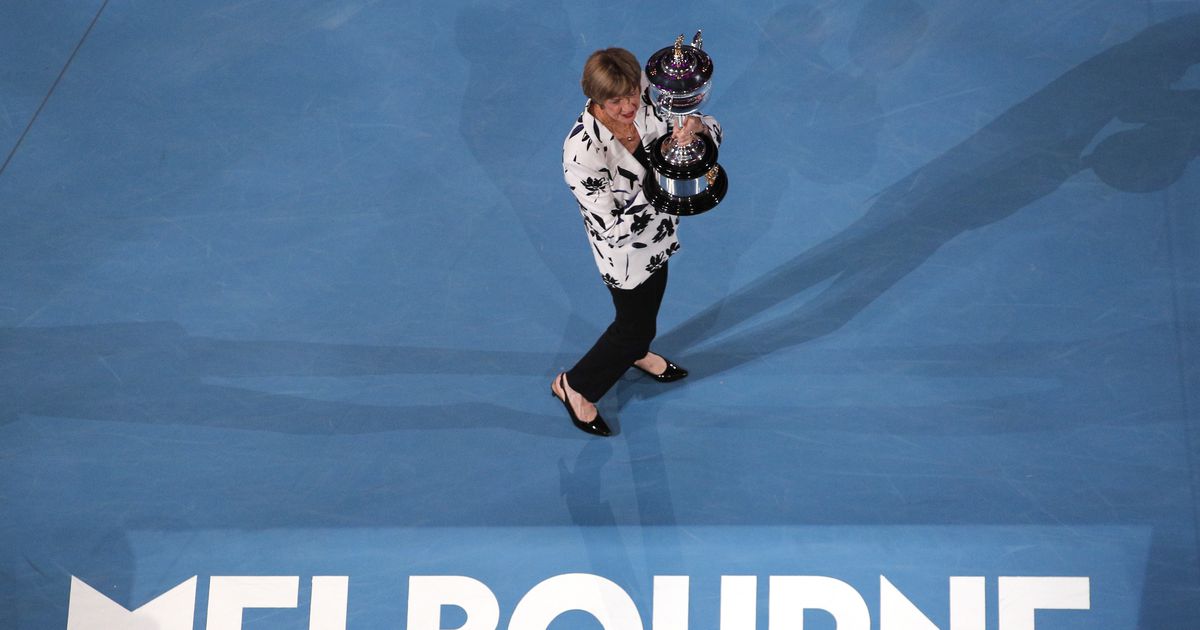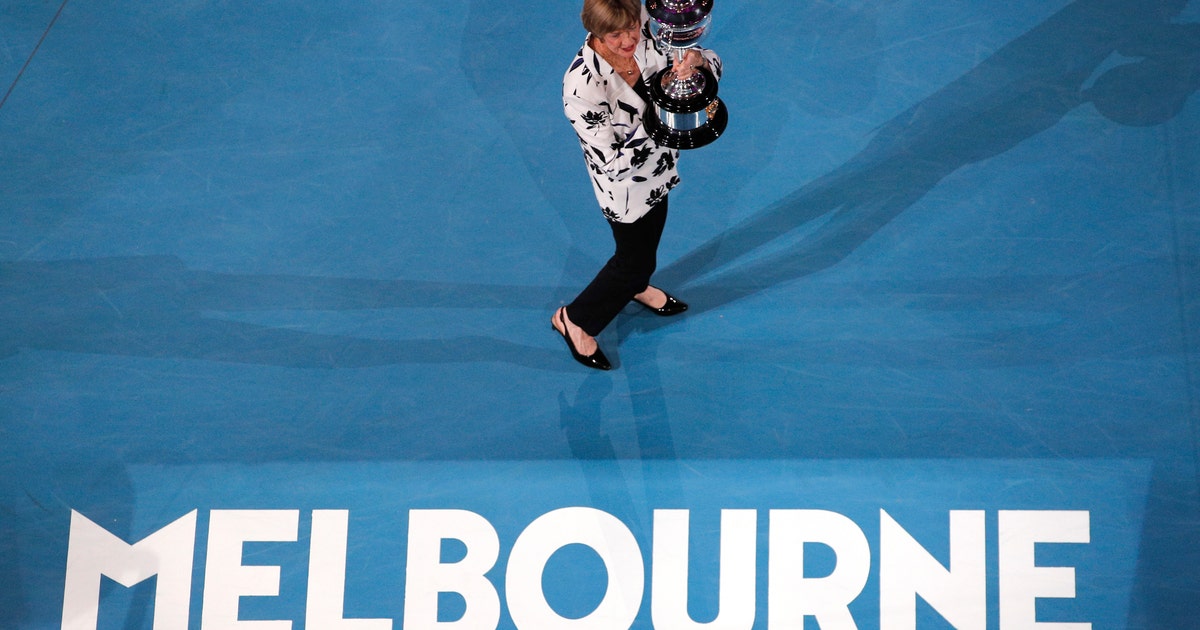Court gets recognition, without addressing Australian crowd


MELBOURNE, Australia (AP) — Margaret Court was present but didn’t address the crowd at a ceremony to mark the 50th anniversary of her calendar-year Grand Slam in 1970, a tricky event for Australian Open organizers trying to balance recognition of the achievement with their responsibility to promote inclusion in sports.
Court’s criticism of homosexuality has been condemned by current and former players, and prompted some to call for her name to be removed from one of the Australian Open’s main arenas.Martina Navratilova, who won 18 major titles, has been a vocal critic of Court’s anti-gay comments.
“It’s just unfortunate because I think what Margaret Court doesn’t realize is how many people she hurts with her rhetoric,” Navratilova said Monday, before the anniversary ceremony. “She can believe whatever she wants but she’s actually hurting people and that’s not OK.”
The 77-year-old Court received a trophy from Rod Laver, who last year celebrated the 50th anniversary of his second Grand Slam, before the night match Monday between Australian hope Nick Kyrgios and top-ranked Rafael Nadal. A video tribute was also played on the big screens.
Some of the crowd was still filing into Rod Laver Arena when the brief ceremony was completed, a couple of minutes before the night session was due to begin.
Court won an all-time record 24 Grand Slam singles titles, including 13 before the Open era. Serena Williams has 23, but hasn’t added to her collection since winning the 2017 Australian title.
Court was been a minister at a Pentecostal church in Perth, Western Australia, since 1990s and made many of her controversial comments in that role.
John McEnroe criticized Australian Open organizers for going ahead with the ceremony, describing the ex-player in a video for Eurosprot as Tennis Australia’s “crazy aunt.
“There’s only one thing longer than a list of Margaret Court’s tennis achievements — it’s her list of offensive and homophobic statements,” McEnroe said in the video. “You can’t separate the person from her achievements.”
Jelena Dokic, who had a career-high No. 4 ranking and reached the Wimbledon semifinals in 2000, said it was challenging for Australian Open organizers to balance the sporting achievement from the individual.
“It’s hard to go past her winning 24 Grand Slams, as an athlete, which is incredible,” Dokic told The Associated Press. But, ”I absolutely do not agree or support anything (Court) has said. It’s extremely discriminatory and very hurtful. It’s very hard to go past.
“Everyone has extended the olive branch to (Court) — the rest is up to her,” added Dokic. “Sport is a place where we should give everyone a chance, it’s about everyone coming together — it’s all about inclusion and giving everyone a chance.”
Mats Wilander, who won three of his seven Grand Slam singles titles in Australia, made an oblique reference to Court’s attitudes.
“I played on Margaret Court today, and I think it’s too slow,” he said. Asked to explain the connection, he reiterated: “What I’m saying is, the court is too slow. That court needs to keep up with the other courts!”







